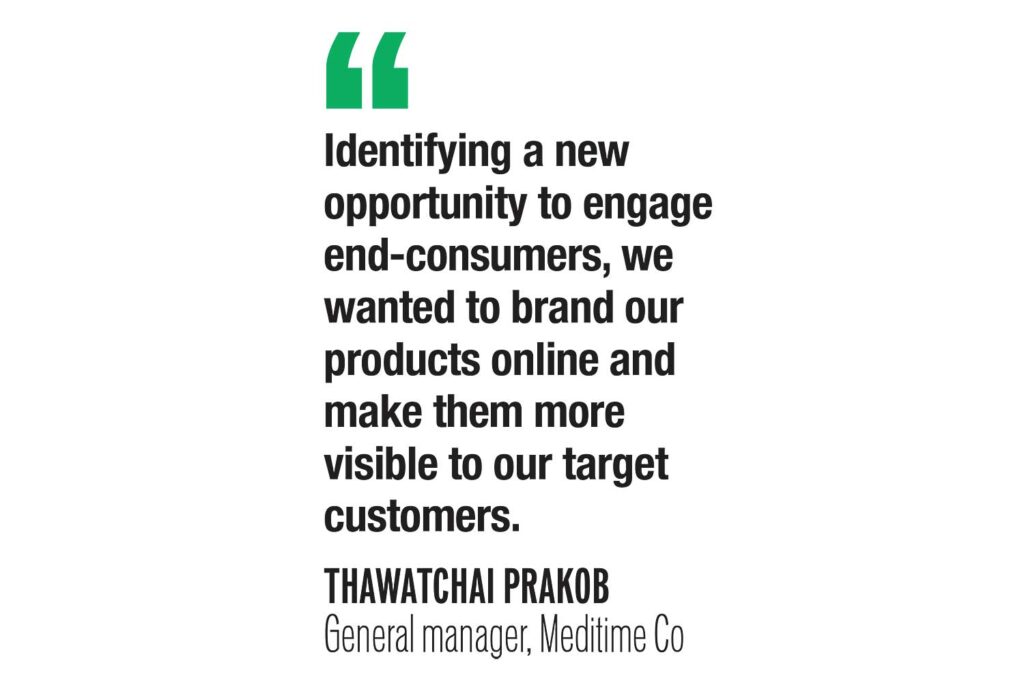Digital future for SMEs: Thai small businesses need new digital strategies for business competitiveness.

UOB The FinLab Launches The Greentech Accelerator
Before the Covid-19 pandemic, consumers were already shifting their spending to online platforms. The prolonged pandemic has supercharged this trend. In Thailand, 68% growth in e-commerce drove an estimated 51% year-on-year jump in the value of the digital economy to US$30 billion in 2021, according to the e-Conomy SEA 2021 report.
From the start of the pandemic in early 2020 to June 30 last year, Thailand saw the addition of 9 million new digital consumers; significantly, 67% of them reside in non-metro areas.
These growth trends indicate a myriad of opportunities for small and medium-sized enterprises (SMEs). The UOB Asean SME Transformation Study 2021 found that SMEs were already recalibrating their key strategies to focus on digitising their businesses (60%), adopting digital marketing (58%) and improving the customer experience (52%) to gain a competitive advantage and improve business sustainability.
UOB Thailand, The FinLab and its partners — including the National Science and Technology Development Agency (NSTDA), Office of SME Promotion (Osmep) and Digital Economy Promotion Agency (Depa) — have been supporting SMEs in their digital transformation journey since 2019 through the Smart Business Transformation Programme (SBTP).
More than 2,200 participating SMEs have adopted digital solutions that enabled them to expand their online presence, streamline back-end operations and improve business processes. UOB Thailand and The FinLab also provided advisory and connected SMEs to funding support offered by the Innovation and Technology Assistance Programme (Itap) at the NSTDA. Here are three examples:

The right start
Thailand Knitting Factory Co, the manufacturer and distributor of the famous Double Goose white tank tops, moved into e-commerce to capitalise on the online boom led by the younger generation. “However we faced some inefficiencies in our operations, particularly in our manual production processes,” said managing director Khunakorn Dhanasarnsombat.
“Our business partner, Warrix Sport Co, which had previously participated in the SBTP, connected us to the programme. After a few months, we were able to identify our gaps and were able to prioritise the processes to digitise.”
A key focus, he said, was an enterprise resource planning (ERP) system to modernise administrative processes, “so that we could free up employees’ time to focus more on strategic planning and to deliver exceptional after-sales service”.
Within a month of adopting the SAP Business One solution, the company started seeing improved operational efficiency in online and offline sales, supply chain management and delivery activities.

Sustaining business with digitisation
For Kingdom Organic Network (Thailand), a distributor of organic produce, digital solutions have benefited different aspects of the business from online transactions to project management and smart farming, said managing director Kanittha Treerattanaphon.
“We implemented a digital solution to manage our project, under which we have to work with local farmers in various neighbourhoods across the country to control their product quality,” she said.
“The solution helps us with data analytics for day-to-day operations, inventory and budget management, and research and development. It also enables our network of local farmers to gain digital skills to improve their own farm management.”
New normal, new opportunities
Meditime Co, a distributor of medical devices, used to sell mainly to doctors as well as public and private hospitals, so the business relied more on sales techniques and long-term relationships, said general manager Thawatchai Prakob.
“However, we recently observed the shift in customer behaviour — from getting recommendations from doctors to looking up information on medical devices online directly to learn about functionality, product quality and prices, before asking for a doctor’s opinion.
“Identifying this opportunity to engage end-consumers, we wanted to brand our products online and make them more visible to our target customers by having them shown in search engine results.
“After joining the SBTP, we received guidance on digital solutions that helped us in branding, online sales and digital marketing. We will continue to train our employees and plan our time and resources to take full advantage of digital adoption.”
Digital future for SMEs: Thai small businesses need new digital strategies for business competitiveness.



